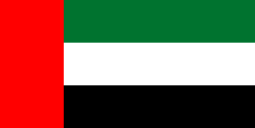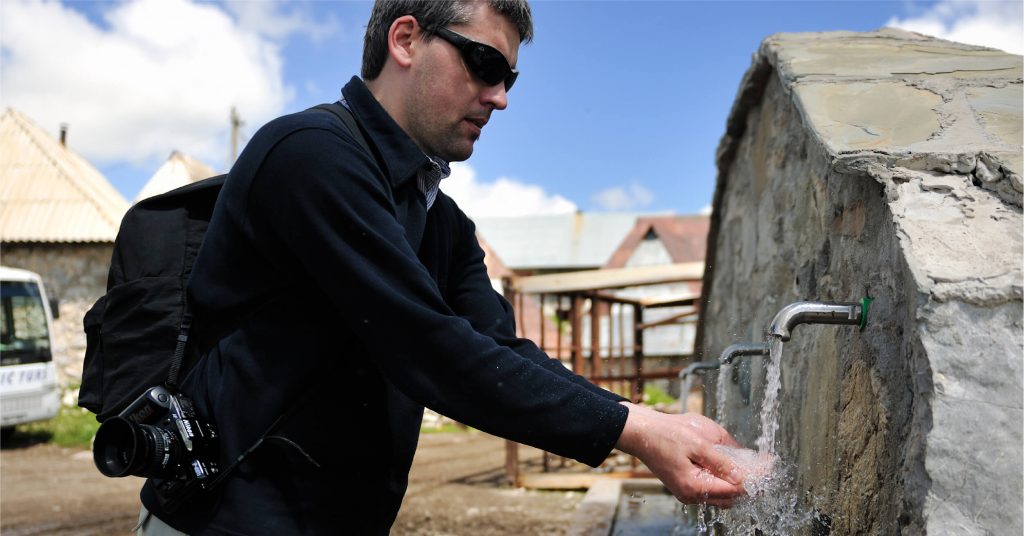Access to clean and safe drinking water is essential for public health, economic growth, and environmental sustainability. In the UAE, ensuring a reliable supply of potable water is a priority given the country’s arid climate and limited freshwater resources. Potable water, or water that is safe for human consumption, is a cornerstone of modern infrastructure and vital for maintaining high living standards.
This blog will delve into what potable water is, the systems that ensure its safety, the distinction between potable and non-potable water, and how the UAE meets the challenge of providing safe drinking water to its population.
What is Potable Water?
Potable water is water that has been treated and deemed safe for human consumption. It meets specific health and safety standards, ensuring that it is free from harmful contaminants like bacteria, viruses, heavy metals, and chemicals. Potable water is used for drinking, cooking, and other domestic purposes, making it an essential resource for maintaining public health.
What is a Potable Water System?
A potable water system refers to the infrastructure and processes designed to collect, treat, store, and distribute water that is safe for drinking. These systems involve multiple stages of purification to remove physical, chemical, and biological impurities.
Key components of a potable water system include:
- Source Water Collection: Water is sourced from groundwater, surface water, or desalination plants.
- Water Treatment: Advanced treatment technologies, including filtration, reverse osmosis, and disinfection, are used to ensure water safety.
- Storage and Distribution: Treated water is stored in secure reservoirs and distributed through pipelines to homes and businesses.
What is Potable and Non-Potable Water?
The distinction between potable and non-potable water lies in their intended use and safety for consumption:
- Potable Water:
- Safe for drinking, cooking, and personal hygiene.
- Meets stringent quality standards set by health and environmental authorities.
- Non-Potable Water:
- Not suitable for drinking due to the presence of contaminants.
- Used for industrial processes, irrigation, and other non-consumptive purposes.
Ensuring Safe Drinking Water Standards in the UAE
The UAE has invested heavily in infrastructure and technology to ensure a consistent supply of potable water. Here’s how the country maintains high drinking water standards:
- Desalination Plants:
The UAE relies on desalination to convert seawater into potable water. Advanced technologies such as reverse osmosis and multi-stage flash distillation are used to remove salt and impurities, ensuring safe drinking water. - Strict Regulations:
The UAE enforces stringent regulations and quality standards for potable water. These standards are aligned with international benchmarks, including those set by the World Health Organization (WHO). - Advanced Monitoring Systems:
Real-time monitoring and testing ensure that water quality remains consistent throughout the supply chain. Parameters like pH, turbidity, and microbial content are closely monitored. - Public Awareness Campaigns:
The UAE promotes awareness about water conservation and the importance of maintaining potable water systems. These initiatives help reduce wastage and ensure efficient use of resources. - Sustainability Initiatives:
The UAE is exploring sustainable solutions, such as solar-powered desalination and rainwater harvesting, to reduce the environmental impact of potable water production.
Ion Exchange: Pioneering Sustainable Water Treatment Solutions
Ion Exchange, a leading company in water treatment solutions, has been instrumental in the UAE’s quest for water sustainability. The company provides advanced technologies and systems to address the country’s unique water challenges.
It is a cutting-edge technology used to remove the majority of contaminants from water by applying pressure to force water through a semi-permeable membrane. This membrane allows the passage of water molecules while blocking dissolved salts, organics, bacteria, and pyrogens. The high-pressure pump increases pressure on the salt side, pushing water across the RO membrane and leaving most dissolved salts behind in the reject stream. The treated water typically has 95% to 99% of dissolved salts removed.
It offers an effective method for eliminating biological contaminants. These purifiers guard against water-borne viruses, bacteria, and microorganisms such as Giardia and Cryptosporidium. Exposure to UV radiation within the flow chamber purifies harmful microbiological impurities.
The innovative High Recovery RO (HRR) process, featuring the Water Saver Cartridge (WSC), continuously sweeps away salts and kills microbes, allowing operation at high recovery levels. This process achieves up to 70% recovery from a single RO membrane, three times higher than conventional systems, and saves over 80% of water, making it eco-friendly with a high shelf life for treated water.
Conventional UV systems can suffer from slime buildup, bacterial growth, voltage fluctuation, and quartz scaling, leading to poor disinfection. The patented ESS technology by ZeroB ensures complete microbial kill, overcoming these drawbacks and preventing water recontamination.
Ion exchange resins play a crucial role in various separation, purification, and decontamination processes. Ion Exchange manufactures a range of resins, including poly-iodinated and iron-specific resins, which eliminate microbial contaminants and reduce iron levels to safe drinking standards (less than 0.3 ppm).
Conclusion
Potable water is a fundamental resource that supports life, health, and economic development. Understanding what potable water is and the importance of potable water systems helps us appreciate the efforts involved in providing safe and clean drinking water. As the UAE faces challenges such as aging infrastructure, contamination risks, and climate change, investing in advanced potable water systems is more important than ever. These systems ensure that water is treated and distributed safely, meeting the needs of communities while promoting sustainable water management.
Connect with Ion Exchange experts today to learn more about potable water systems.


